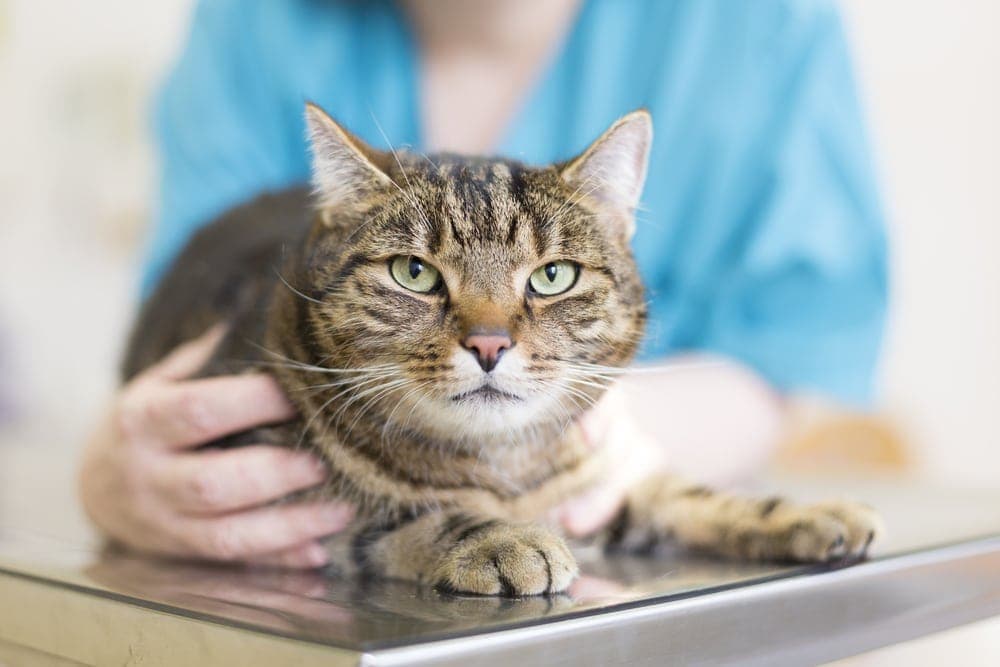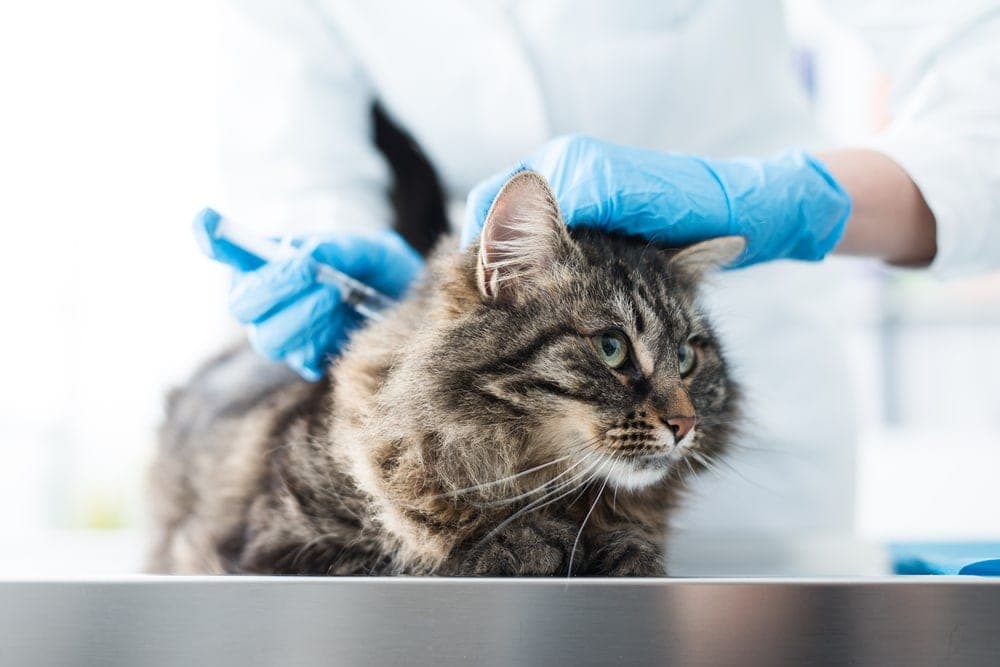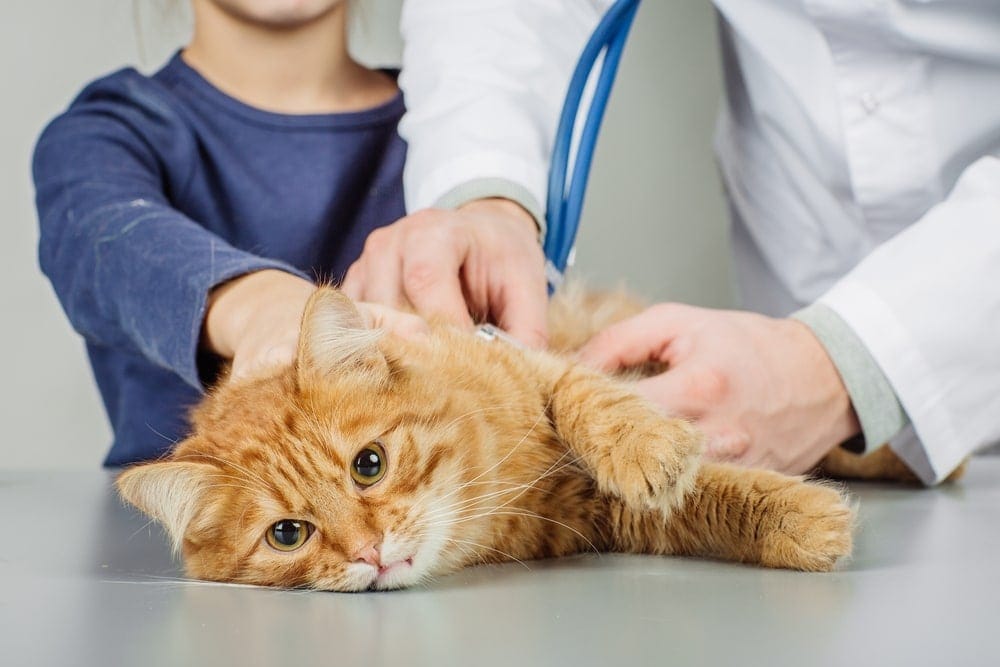People tend to be allergic to cats more than dogs. In fact, up to 1 in 7 kids aged 6 to 19 have an active cat allergy.
There are some pretty interesting reasons for this that you might want to know.
You will probably discover some things you never knew about these allergies.
What Causes an Allergy to Cats?
When someone is allergic to cats, their immune system overreacts to a certain protein that is known as FEL d1. This protein is usually why a person will have an allergic reaction when they are in the presence of these animals.
As a cat grooms itself, the protein multiplies in the air. An allergic reaction can also be triggered if a cat licks someone with this allergy. The protein is found in the urine, skin and saliva of every single cat.
When your immune system registers the protein as a threat, it automatically releases a histamine, which is what causes the negative reaction.
Despite what most people think, it is not actually the hair of the cat that triggers a person’s allergy.
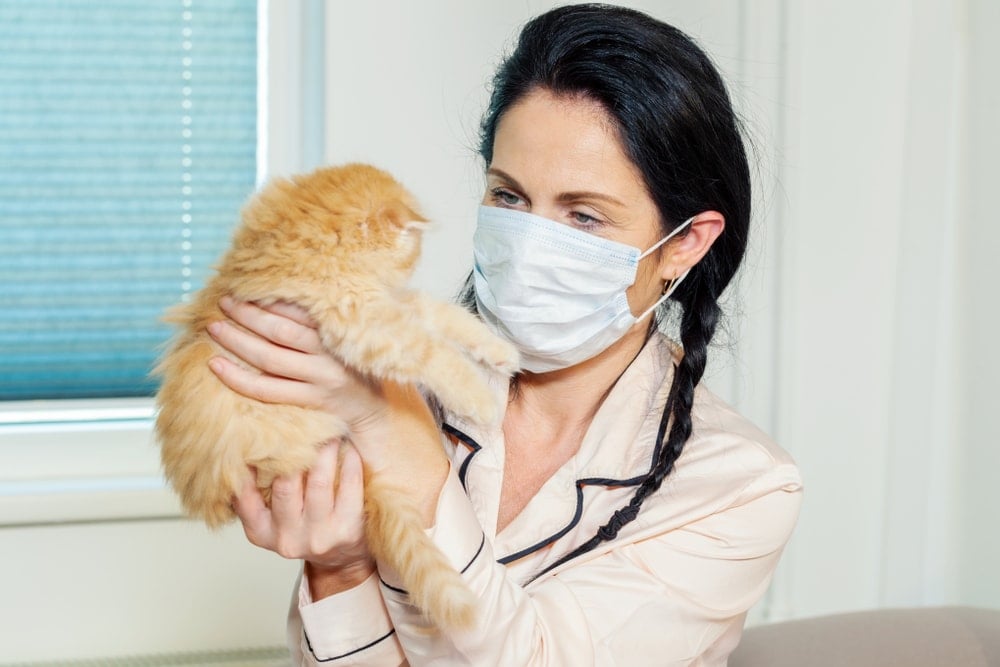
Are More People Really Allergic to Cats Than to Dogs?
Yes, in fact about twice as many people are allergic to cats than dogs. Those who have a dog allergy are only allergic to certain breeds. If you have a cat allergy, you will have the same reaction regardless of the breed.
Unfortunately, there is no such thing as a Hypoallergenic Cat, despite what you might have been told. Male cats tend to give off more of the protein that people are allergic to, especially if they have not been neutered.
Is a Cat Allergy Serious?
Most people who are allergic to cats only experience mild symptoms, but there are people who can have a fatal reaction. Those who also have asthma could have problems breathing.
What are the Signs of a Cat Allergy?
There are a number of symptoms that most people with a cat allergy exhibit when exposed to these animals, including:
- Hives on skin
- Coughing
- Wheezing
- Stuffy and/or runny nose
- Sneezing
- Redness of the area that was licked, bitten or scratched
If you notice any of these things when you are around a cat, you should go to a doctor to get tested so you can be sure.
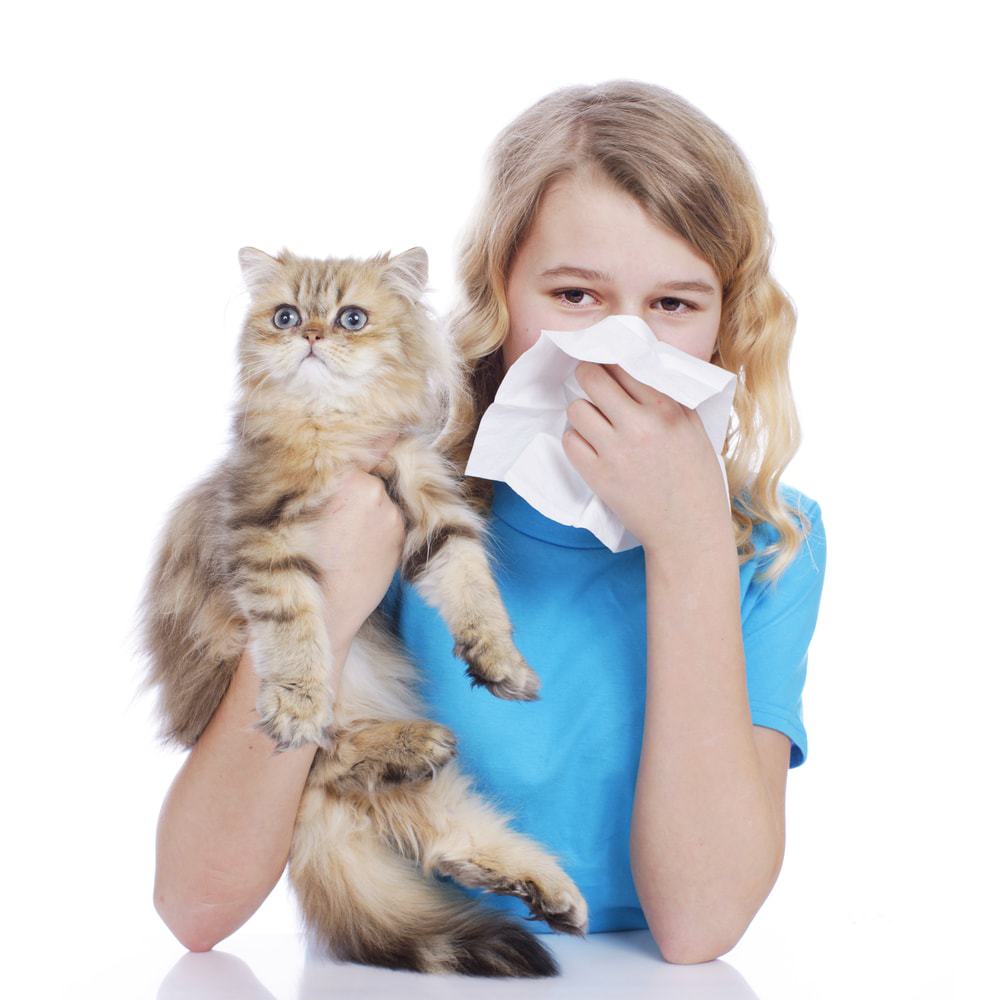
How is a Cat Allergy Treated?
Antihistamines
Over the counter antihistamine medications can be quite effective in preventing an allergic reaction. While there is no cure for allergies of any kind, some people do outgrow them as they get older. The best you can do is to take an antihistamine if you know that you are going to be around any cats. Take one or two tablets an hour before you are exposed to one of these animals.
Keep in mind that some antihistamine medications may make you drowsy. There are non-drowsy antihistamines available, though they tend to be more expensive. It is extremely unlikely that you will have any adverse reaction to this medication.
Shots
You also have the option of getting an allergy shot once every week. These shots could allow you to build up a tolerance to the problem protein over a certain amount of time. It could take several years before your body is able to build up this type of immunity. Some people will never be able to do this.
It is a good idea to speak with an allergist before you decide what course of treatment you should go with. If you are going to live with a cat, you may want to look into getting a weekly shot.
Decongestants
You can also purchase various decongestant sprays over the counter to combat stuffy and runny nose. These steroid sprays can also be prescribed by your allergic or general physician. They can be quite effective but are also addictive.
Tips for Cat Allergy Sufferers
If you have an allergy to cats, there are some tips that you should really be aware of. These tips can help to make your life a little bit easier.
- You should try to avoid touching or directly interacting with cats. This will only increase the intensity of your allergic reaction.
- If you are going to someone’s home for the first time, you should ask them if they have cats. This will allow you to take medication in advance so you can avoid all of that annoying sneezing and sniffling.
- If you are planning to stay with someone who has cats, you should consider asking them to keep them from entering the room that you will be sleeping in. They will need to do this at least 2-3 weeks prior to your visiting for this to be effective.
- You can reduce the allergic reaction to your own cat by grooming it on a regular basis. You should also think about getting an air purifier.
- Do not shave your cat in an attempt to put a stop to the allergies, as it will not make any difference whatsoever.
Conclusion
- Twice as many people are allergic to cats than dogs.
- A person can be allergic to only certain kinds of dogs, whereas cat allergy sufferers are allergic to all breeds.
- Some of the common signs of an allergic reaction to a cat include hives, sneezing, sniffling, and watery eyes.
- Most cat allergies are fairly minor, whereas other people can have a severe and even fatal reaction.
- Despite what most people believe, cat hair does not trigger an allergic reaction. It is actually a certain protein that these cats have.
- If you have a cat allergy, try to avoid touching or coming into direct physical contact with these animals if you can help it.
- If you own a cat, you should make a point of grooming it regularly.
- A good air purifier can make a big difference when it comes to your cat allergies.






